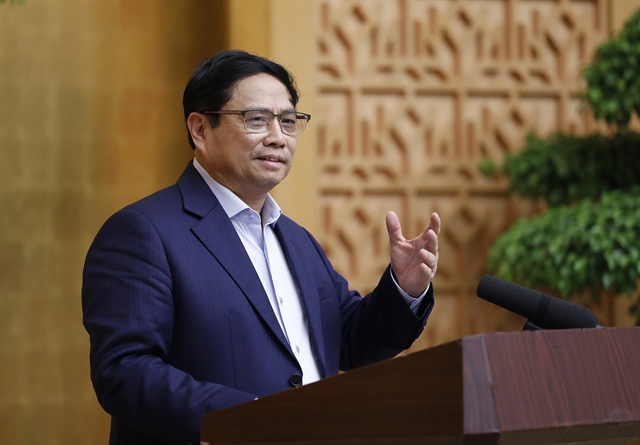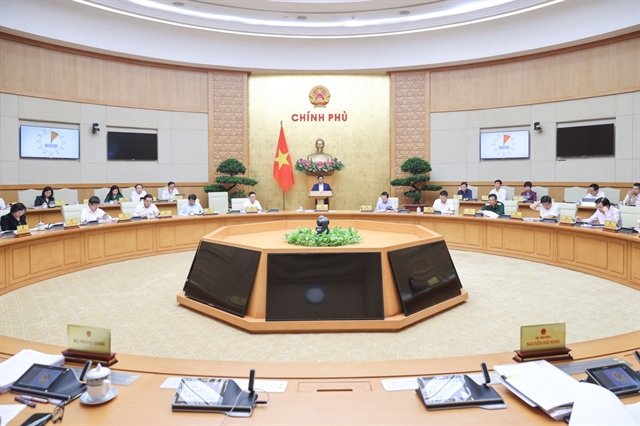 Society
Society

 |
| The Government's regular meeting for October 2024. — Photo courtesy of Việt Nam Government Portal |
HÀ NỘI — Prime Minister Phạm Minh Chính has signed a decision to form a steering committee to review the implementation of Resolution No. 18-NQ/TW, issued in 2017, which seeks to streamline the political system for greater efficiency.
PM Chính will serve as head of the steering committee, with permanent deputy PM Nguyễn Hòa Bình acting as deputy head, alongside other deputy prime ministers and key ministers such as those of defence, public security, home affairs, and justice.
The Ministry of Home Affairs serves as the committee’s secretariat, tasked with coordinating efforts, drafting plans, and proposing restructuring solutions for Government agencies and ministries.
It will also prepare a 20-year review of the Government’s organisational model and propose a structure for the 16th-term Government (2026–2031).
Under the Resolution No. 218/NQ-CP issued on November 12, 2024, the Government has called on all ministries, agencies and local authorities to review their task implementation and resolve any delays or incomplete assignments as outlined by the Party Central Committee, Politburo, Secretariat, and National Assembly. Immediate measures are to be taken to overcome procedural obstacles, eliminate resource bottlenecks, and stimulate development.
The document also emphasises a forward-looking legal framework that encourages innovation, productivity and resource mobilisation while maintaining essential State oversight.
Key to this framework is a shift from prohibitive to supportive regulations, promoting decentralisation with a focus on accountability at the local level.
The Government is prioritising legal proposals in emerging fields, notably digital and green transitions, to foster innovative growth sectors.
Ministries and localities are also instructed to maximise resources including partnerships with international agencies and NGOs as they work towards completing Project 161 by 2025, which targets a people-centred, inclusive, resilient, and sustainable development model.
A campaign is underway to eliminate makeshift housing nationwide by 2025, with localities urged to review funding allocations to meet housing support needs for vulnerable groups.
The Government’s digital strategy aims to lower administrative costs, simplify processes and improve public services, moving towards automated and digital solutions.
In addition, the Government highlights waste reduction alongside anti-corruption efforts, encouraging a culture of efficiency and accountability.
Ministries and agencies are expected to communicate these priorities to the public and celebrate positive initiatives, all while countering misinformation.
This coordinated approach aims to align with Việt Nam’s 2024 socio-economic development goals. — VNS